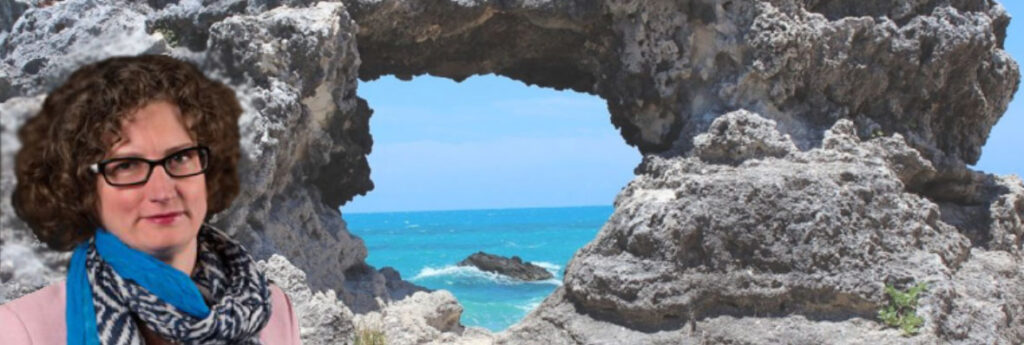Being located in the middle of the Atlantic Ocean can be a blessing and a curse. Just ask Bermuda, which has seen the best of both worlds this week as it basked in its limited exposure to the world’s COVID-19 crisis, but at the same time was buffeted by Hurricane Paulette.
The latter was a rare occurrence for the island, which has seen fewer than 10 hurricanes make landfall since the 1850s, though that counted for little as the category 2 storm knocked down trees and power lines on Monday and had preparations complicated by the pandemic.
However, Bermuda Tourism Authority (BTA) chief sales and marketing officer Victoria Isley told Travel Industry Today that damage was limited and that the island had largely returned to normal by Wednesday, including the re-opening of Wade International Airport.
“We’re built to prepare for, withstand, and rebound from hurricanes – from the resiliency of the community to the way the infrastructure of the island is built,” Isley said, adding, “We’re very fortunate that Bermuda is built to last in that way.”
With the passing of the storm, the British territory is able to focus again on managing a more long-term issue: getting back to business during the pandemic.
Fortunately, the island has been well-equipped in that regard as well, according to Isley, who says, “The island has done extremely well given the extreme circumstances that we’re all dealing with as human beings this year.”
Isley recounts that the island went into lockdown on March 20 and re-opened its border on July 1 with Air Canada from Toronto notably being the first international service to arrive a day later on July 2 – a flight that is continuing weekly.
During the pandemic, Bermuda has registered a total of 177 cases (including nine deaths), but never more than five in a single day, helping it achieve a CDC “moderate” level 2 risk ranking (Canada is level 3) – one of only six countries in the world.
It’s an enviable record that the island intends to maintain through strict health and safety protocols for visitors, which include a test upon arrival at the airport and then again after four, eight and 14 days at a testing site in town. Initial results are delivered within 24 hours and a negative result allows visitors to roam the island freely, albeit with required masks in public places. (A pre-arrival travel authorization process is also in effect).
Isley says the robust protocols have helped it attract visitors looking for a safe haven, though she admits, “there are fewer these days.”
Since the “soft re-opening” in July, arrivals are running at about 12 percent of previous levels, though visitors are staying considerably longer on average – 11 days vs. four days – than before while the average age of visitors has also dropped to 37 from 40.
In terms of Canada specifically, work-at-home flexibility during the pandemic has helped mitigate Canada’s required 14-day quarantine upon return for many people, Isley says. And she adds that based on its level 2 risk status, Bermuda would strongly advocate to be a “travel corridor” country for Canada should its border restrictions be eased.
The island has also launched an innovative “Work from Bermuda” program to ease restrictions for visitors to relocate there for up to a year if their jobs allow them to work remotely. About 300 international visitors from Canada, the US and UK have applied to the program to date.
Heavily dependent on cruise visitors, the island typically winds down its season – cancelled this year – in October and restarts again in April, giving the island some time to work through any issues that will come with a resumption of service, though Islay says recent years have seen Bermuda move towards receiving smaller vessels that dock on both sides of the island to help ease congestion by redistributing shore traffic away from Hamilton.
Isley acknowledges that “for the global tourism industry, it’s going to be a long road back to full recovery” from the pandemic, but she adds, “As challenging as these times are, we are seeing small green shoots of travellers returning.”
To that end, she says Bermuda’s travel industry is carrying on, by, for example, hosting a series of sporting events (Bermuda Cup sailing, PGA golf, rugby 10s) this fall, while a new airport terminal is set to open on Dec. 7 (postponed from July) and a new St. Regis should be ready by April.
“I think that being out in the middle of the ocean in such a small community in some cases certainly has its benefits,” Isley muses. “And we’ve certainly been working to leverage those, while continuing to protect the community as well.”

